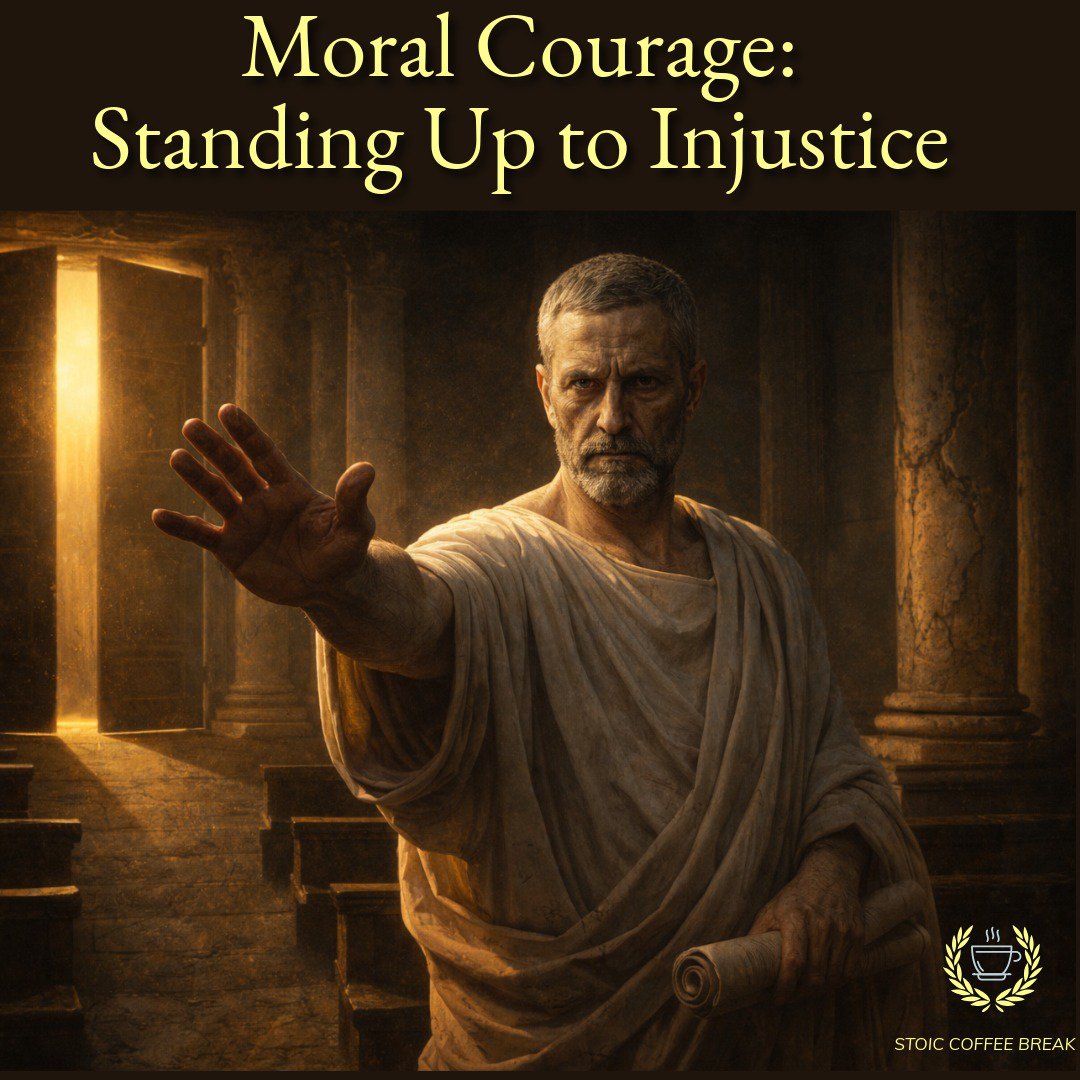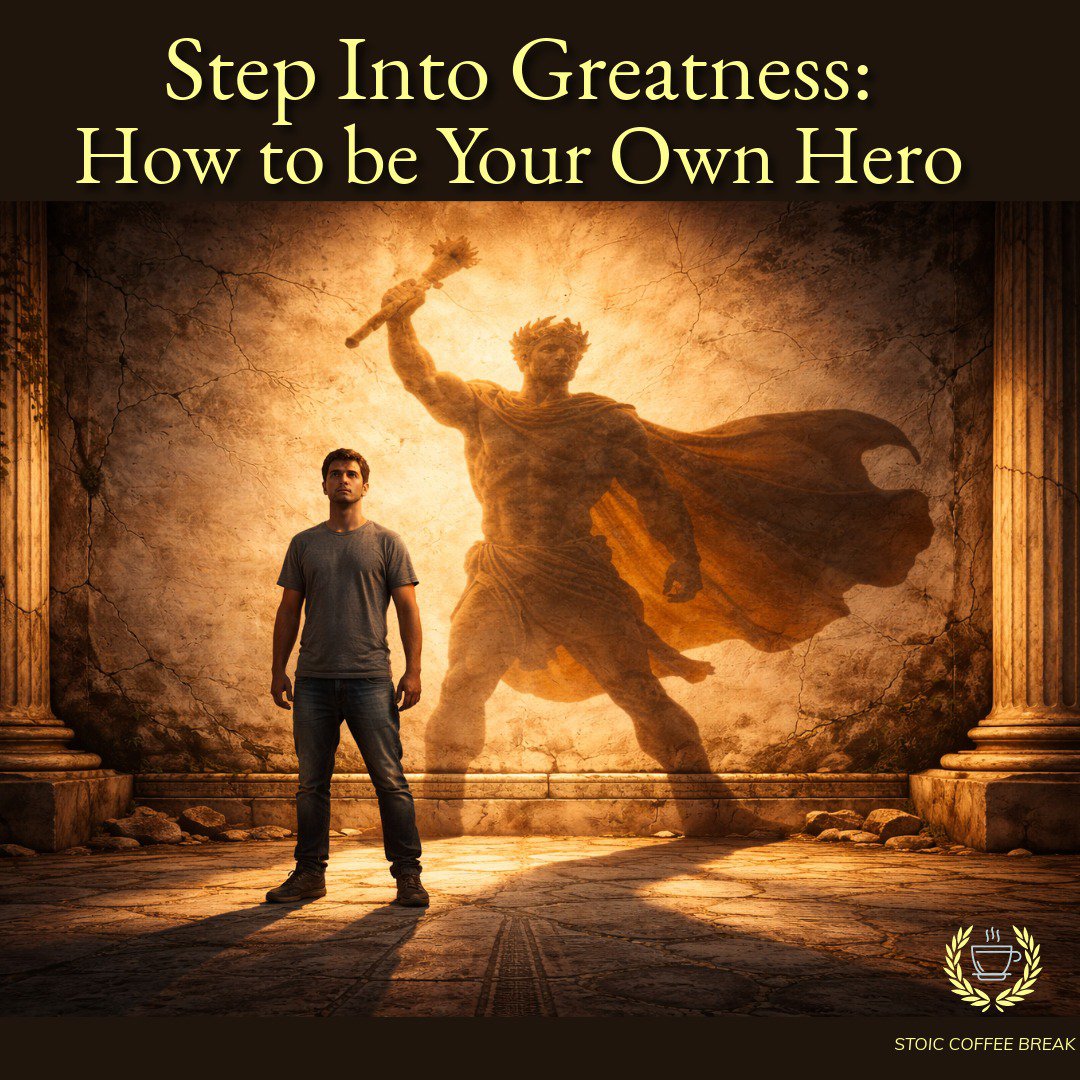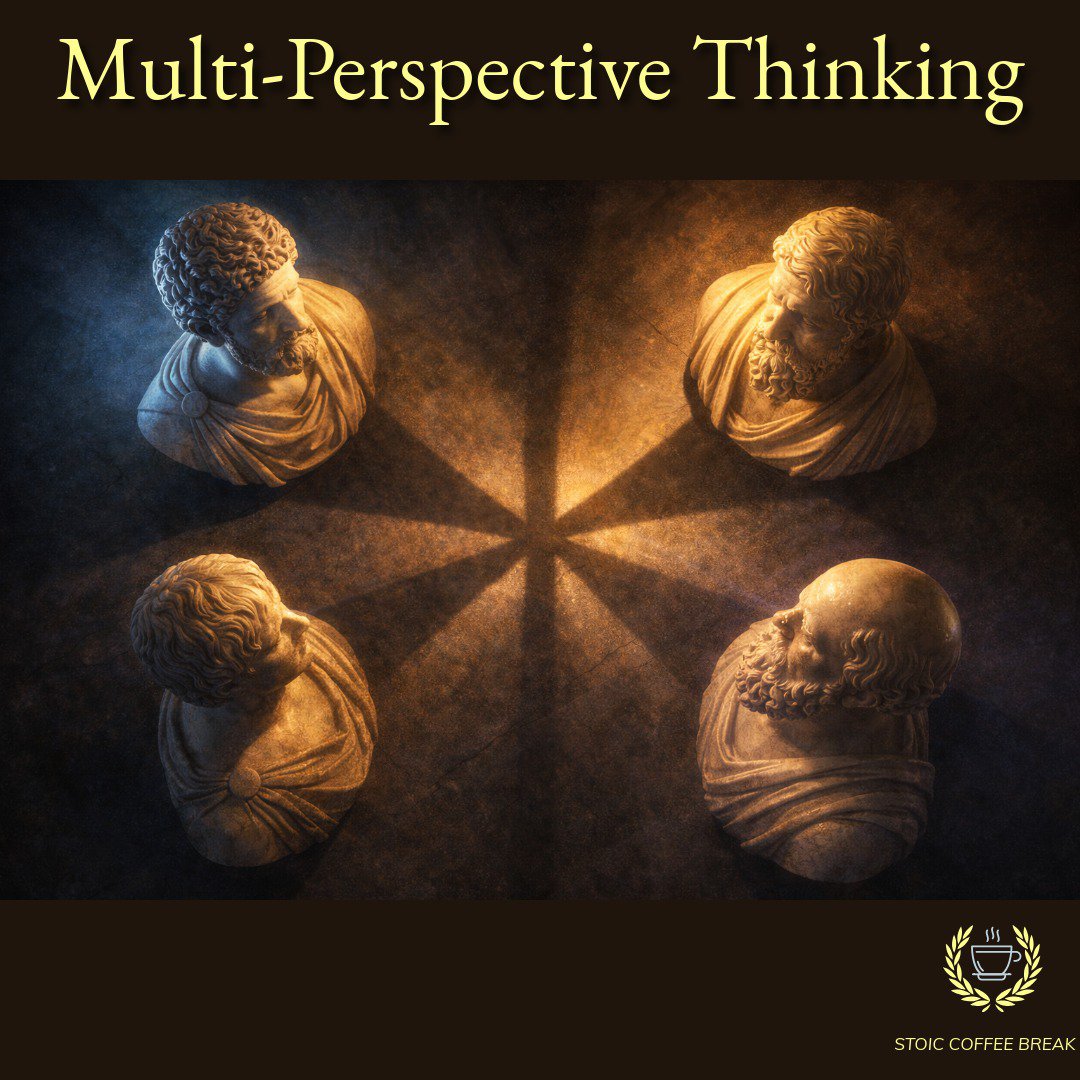
Have you ever tried to change someone’s mind, only to find them doubling down on their belief instead? Or maybe you’ve felt your own defenses rise when someone challenges your deeply held views? That’s the backfire effect in action—a cognitive bias where contradictory evidence only strengthens someone’s existing beliefs. Today, we’ll explore how Stoicism can help us recognize and mitigate this bias, both in ourselves and others.
“If anyone can prove and show to me that I think and act in error, I will gladly change it—for I seek the truth, by which no one was ever truly harmed.”
— Marcus Aurelius
What Is the Backfire Effect?
The backfire effect is a cognitive bias where people resist evidence that contradicts their beliefs and often become more entrenched in those beliefs as a result. Rather than helping someone see where they might be wrong, it only serves to strengthen their resolve to hold onto that belief.
Why the Backfire Effect Happens
The main reason that the backfire effect happens is when we have deeply held beliefs, we often tie them to our identity. When a belief is challenged, it feels like an attack on who we are, triggering a defensive response. Our ego wants to maintain its consistency, and so we defend deeply held beliefs to maintain who we think we are. We may feel like that if we are wrong in belief, then it makes us wrong or bad as a person for holding that belief.
Usually these beliefs are tied to a specific worldview that we have, and reexamining or changing that worldview could mean a massive upheaval in our lives. Beliefs in this category also usually stoke strong emotional responses, and therefore we’re often less willing to examine them in a logical or rational manner. This is also why discussions around these topics can get heated rather quickly, and veer off the rails and into personal attacks or even altercations.
One clear example of this is in our political identity. If we identify strongly with a political ideology, party, or candidate, then we will often ignore or somehow justify contradictory evidence, and dig our heels in even further to show our belief or loyalty. This is why political discussions at the holiday dinner table often feel like entering a war zone. People aren’t just defending their party or candidate, but a core part of their identity.
Religion is another area that falls into the category. Think about it—when someone talks about their religious faith, they usually refer to themselves by the name of their faith or a member of that religion, rather then simply talking about the things that believe in. It is integrated into their identity.
Why Overcoming the Backfire Effect Matters
Overcoming the backfire effect is important because letting go of false beliefs is how we grow and get closer to the truth. The more we resist evidence of where we could be wrong due to ego and the fear of being wrong, the longer we may be harmed by our incorrect beliefs.
Often we believe that the stronger we hold onto and defend our beliefs, the better a person we are. But if a belief is incorrect, the stronger we defend it, the more damage we may cause to ourselves or others. It can be the reason we sever connections with friends and family. We’ve seen this in our current political divide throughout the world. In my own experience, I’ve had friends and family that have been cut off because they no longer held the views of their religion. I find this such sad thing—that people cut off those they love, even their children, for not thinking or believing the same way they do.
The Stoic View on Beliefs and Bias
“Truth does not change according to our ability to stomach it.”
— Flannery O’Connor
Stoicism teaches us to approach beliefs with humility and openness, recognizing that we are fallible and prone to error. Stoicism’s ultimate goal is arête—excellence of character—which requires intellectual humility. Embracing truth, even when it’s uncomfortable, leads to a life of greater clarity and purpose.
The Stoics teach us to detach our sense of self from external opinions and beliefs. Our worth is not diminished if we admit we were wrong—it is enhanced by our willingness to grow. Marcus Aurelius, in Meditations, constantly reminded himself to question his assumptions and seek the truth, even if it contradicted his initial opinions. As I mentioned at the beginning of this episode, he reminds us of the importance of intellectual humility, writing:
“If anyone can prove and show to me that I think and act in error, I will gladly change it—for I seek the truth, by which no one was ever truly harmed.”
— Marcus Aurelius
The truth cannot harm us. That’s such an important thing to internalize. There’s nothing wrong with being wrong, but persisting in error is. Our goal should not to be right, but to be less wrong. Get closer to the truth by figuring out what isn’t correct, and seeking other ideas.
The Role of Virtue in Overcoming Bias
The Stoic virtues of wisdom and courage are key to overcoming the backfire effect. Wisdom helps us recognize when we’re wrong, and courage helps us admit it. Wisdom is not just knowledge, but and examination of knowledge and experiences. Someone who is wise doesn’t know everything, but is constantly learning and adjusting their perspectives. The Stoic mindset encourages us to see challenges to our beliefs as opportunities for growth, not threats.
When we practice Stoic courage, we have the willingness to examine our beliefs, admit when we’re wrong, and change those beliefs. Seneca reminds us:
“A man who is not afraid of the truth need never fear lies.”
When we align our decisions and beliefs with virtue, we free ourselves from the fear of admitting we’re wrong. We acknowledge that truth, not the preservation of ego, should be our ultimate goal.
How to Address the Backfire Effect in Yourself
“You must put aside the longings that are vanity and be content with the truth.”
— Epictetus
Recognizing our own susceptibility to the backfire effect is the first step. It requires self-awareness and a commitment to seeking truth over comfort. One way that we can do this is by practicing premeditatio malorum (negative visualization) by writing down opposing arguments to your beliefs and consider their validity. When you do this, consider the words of John Stuart Mill:
“He who knows only his own side of the case knows little of that. His reasons may be good, and no one may have been able to refute them. But if he is equally unable to refute the reasons on the opposite side, if he does not so much as know what they are, he has no ground for preferring either opinion.”
It’s also important that you reflect on how clinging to a false belief could harm your progress toward wisdom. Often, we don’t take the time to really examine beliefs that we hold. We may have taken on ideas from our family, culture, or even through our own experiences that we simply hold to be true. We get comfortable with our view of the world and think that it’s just how the world is.
This is why Socrates said:
“I know that I am intelligent because I know that I know nothing”.
Adopting an attitude like Socrates of openness to the idea that our own experience is just that, our experience, then we don’t feel attacked when someone questions our beliefs. We look forward to it because we aren’t attached to our beliefs. You can practice this by journalling and answering the question: “What belief did I hold today that might be mistaken?”
How to Address the Backfire Effect in Others
“You have power over your mind—not outside events. Realize this, and you will find strength.”
—Marcus Aurelius
When engaging with someone entrenched in their beliefs, Stoicism offers tools for respectful, empathetic dialogue. First, don’t attack the other persons beliefs or them personally. Stay calm and respond to resistance with patience, avoiding emotional escalation. When discussing deeply rooted beliefs, things can get tense, so keeping your cool can allow others the space to express themselves without it turning into a Battle Royale.
Next, ask questions and be sure that you’re asking out of place of curiosity, not to try and trap them. Encourage the other person to reflect on their belief without feeling attacked. Asking someone, “What evidence would make you reconsider this position?” will get you a lot further than directly attacking their position.
A few years ago I was having a discussion with my mom about the Mormon church and I could feel that she was getting defensive. I decided to take a different track. Now my mom is a kind and inclusive person, with high standards, so I asked her, “Can you help me understand why you are defending an organization that is at odds with your own moral compass, and has lower moral standards than you?” At the time, stopped her in her tracks and she said she’d have to think about it.
Months later, she told me that when I asked her that question she really didn’t have a good answer. After thinking it over for a while she realized that I was right. She did treat people better than the church as a whole. After spending some time digging into the church’s dirty laundry and checkered past, as well as their position on issues that were important to her, she decided that she could no longer support the church and she left.
Next be sure to model openness by demonstrating your own willingness to revise your beliefs. This humility can encourage others to do the same. Sharing experiences about how you changed your beliefs can model that changing beliefs when they are wrong or no longer suit you is actually a good thing and can have positive benefits in their life.
Lastly, share stories, not facts. People are more likely to connect with personal experiences than abstract evidence. Humans are built for stories, not statistics. Over millennia we have convinced people to work together to build society not through cold hard facts, but through stories. Religion itself is just a set of rules and ideas based around stories. This is why we change our opinions about a lot of things through books and movies, rather then attending a lecture.
Conclusion
The backfire effect isn’t just a bias—it’s a mirror, reflecting our deepest insecurities and attachments. But with the Stoic principles of self-awareness, humility, and reason, we can face it head-on. Let’s strive to be people who value truth over ego, openness over stubbornness, and wisdom over certainty.
Build an Unbreakable Year! Join us for a Stoic Yearly Planning Session!
Visit the Stoic Coffee Break website for more episodes, transcripts, and merch.
Watch episodes on YouTube!
Find me on linkedIn, instagram, twitter, or threads.
Thanks again for listening!


